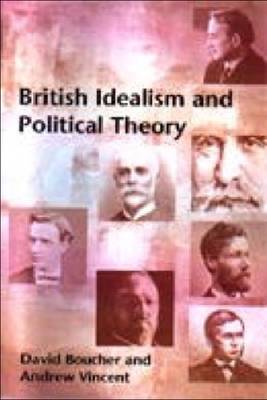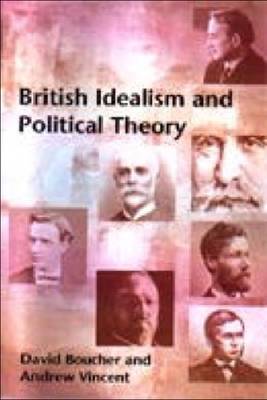
- Retrait gratuit dans votre magasin Club
- 7.000.000 titres dans notre catalogue
- Payer en toute sécurité
- Toujours un magasin près de chez vous
- Retrait gratuit dans votre magasin Club
- 7.000.0000 titres dans notre catalogue
- Payer en toute sécurité
- Toujours un magasin près de chez vous
47,45 €
+ 94 points
Description
British Idealism - influenced by the character of German Idealist thought at the end of the eighteenth century, developed by Kant, Fichte and Hegel - began to establish its roots during the middle of the nineteenth century and rapidly became the dominant British philosophy. It began to be challenged at the turn of the century by philosophers including Bertrand Russell and by the end of the First World War it was on the retreat, although its philosophical reverberations are still evident. Testimony to this fact is the considerable renaissance in all aspects of Idealist studies, and particularly in the works of its most recent twentieth-century exponents Michael Oakeshott and R.G. Collingwood.This book offers an introduction to British Idealism through a study of each of the seven key thinkers - T. H. Green, Bernard Bosanquet, F. H. Bradley, Henry Jones, David Ritchie, R. G. Collingwood and Michael Oakeshott. It explores the background religious, political, moral, ideological and economic themes which underpin the work of the thinkers and shows the relevance of their philosophy - with the emphasis on social cohesiveness and the relationship between individual and collective responsibility - to current politics.Written by two of the leading experts in the field, this is a valuable text that will introduce the theory of British Idealism to a broad range of readers.
Spécifications
Parties prenantes
- Auteur(s) :
- Editeur:
Contenu
- Nombre de pages :
- 224
- Langue:
- Anglais
Caractéristiques
- EAN:
- 9780748614288
- Date de parution :
- 27-10-00
- Format:
- Livre broché
- Format numérique:
- Trade paperback (VS)
- Dimensions :
- 156 mm x 233 mm
- Poids :
- 390 g

Les avis
Nous publions uniquement les avis qui respectent les conditions requises. Consultez nos conditions pour les avis.






